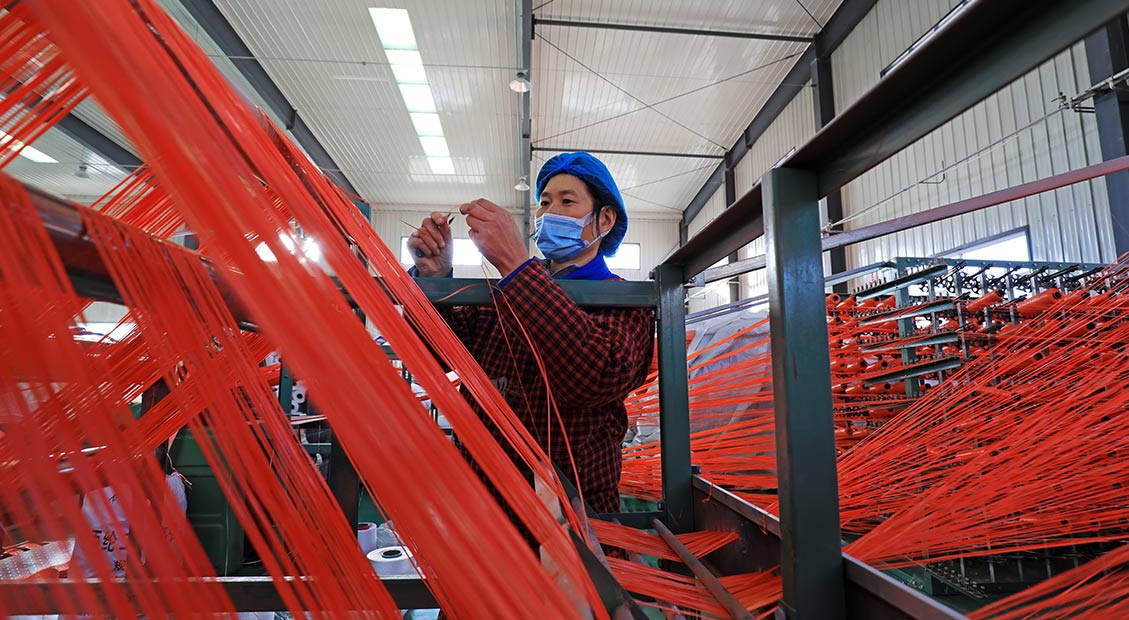China can capitalize on a higher participation rate in global value chains (GVC) to hasten its recovery from the pandemic, according to the 2021 Asian Infrastructure Finance (AIF) report released by the Asian Infrastructure Investment Bank (AIIB).
GVC participation across China will largely rely on a combination of improving infrastructure, strengthening institutional quality and increasing port efficiency, capacity and connectivity with the hinterland. Increasingly, providing green infrastructure that offers opportunities to decarbonize will become an important way to attract GVC investment.
Greater participation in global value chains is a proven development pathway for emerging economies. Government investments in transport, electricity and connectivity infrastructure can help boost GVC participations, but these investments must incorporate both digital and net-zero elements to compete on the world stage.
“China’s economy is in a stage of fundamental transformation. By continuing to maintain economic openness and links with global supply chains despite the headwinds, it can contribute greatly to regional economic growth and prosperity,” said Erik Berglof, Chief Economist of AIIB. “Targeting activities that will decarbonize and green its supply chain will offer the greatest potential to strengthen China’s competitiveness for the future.”
Several factors contribute to China’s rising role in GVCs: (1) rapid expansion and upgrading of modern infrastructure networks, (2) foreign direct investment (FDI) inflows to China, (3) outward FDI from China to the world and (4) improvement of soft infrastructure, institutional support and other GVC facilitation policies.
Since China’s economic reform in the 1980s, the economic weight within the country has shifted from north to south, and some inland provinces and cities have emerged as important hubs for high-technology industry and trade. Again, infrastructure has played a critical role in these shifts. China’s changing role in GVCs and its maturing as an economy will present opportunities for further regional development.
“The competitiveness of exports depends on whether cargo can reach its destination on time at a reasonable cost, which is even more important for GVC exports,” said Berglof. “What is clear is that there is ample room to improve the road network to bring inland states ‘closer’ to the ports. What is also clear is the mutually reinforcing nature of infrastructure development and exports.”
For countries looking to maximize the economic potential of GVCs, the 2021 AIF report identifies following considerations:
1. Digitization—The quality of digital infrastructure has become an increasingly important means of attracting GVC-related investments. Digitization and information technology upgrades are becoming the norm to improve efficiency and attract customers to ports and logistics facilities around the world. It can also bring about environmental benefits.
2. Compete by offering opportunities to decarbonize GVCs—GVC trade produces significant levels of carbon emissions. Shifting toward environmentally friendly and green economy production that leverages efficient and effective multimodal green transport systems will be a competitive advantage.
3. Inclusive development—While GVCs have been a leveler for many developing and emerging economies, improving productivity and long-term growth, they also risk leaving behind countries and groups within countries. These divergencies could be further reinforced by efforts to decarbonize production and transport along the chains. In designing policies to attract and sustain engagement with lead firms, policy makers must be aware of the potential distributional consequences: the transition to net-zero must be a just transition that encourages equal opportunities and protects individuals and countries from falling behind.
About AIIB
The Asian Infrastructure Investment Bank (AIIB) is a multilateral development bank whose mission is financing the Infrastructure for Tomorrow—infrastructure with sustainability at its core. We began operations in Beijing in January 2016 and have since grown to 104 approved members worldwide. We are capitalized at USD100 billion and Triple-A-rated by the major international credit rating agencies. Working with partners, AIIB meets clients’ needs by unlocking new capital and investing in infrastructure that is green, technology-enabled and promotes regional connectivity.


